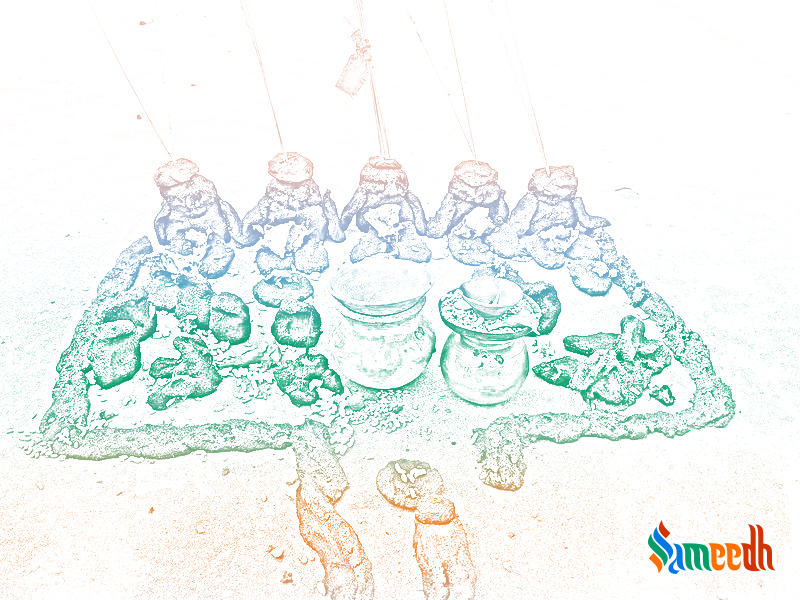Relevance of the Hindu festival, its history and celebrations

Anna translates to food and kut or koot is mountain literally meaning a mountain of food. Annakut is a festival in Hinduism celebrated to praise Krishna, one of god Vishnu’s avatars. It is also hailed as Govardhan Puja. Go means cow and vardhana equates to nourishment. Go also translates to senses and Vardhan to increase devotion towards Lord Krishna through those senses. On this occasion multiple vegetarian dishes of foods are offered to Lord Krishna and other deities to offer gratitude towards them. It is celebrated right after the day of Diwali, the festival of lights in Hinduism marked to welcome lord Ram from Lanka, merging with the 5 day festivities. It is a widely enjoyed festival across the subcontinent of India but is majorly participated in by Vaishnavas, ardent followers of lord Vishnu.
History
As mentioned in Bhagavad Gita, the great Indian epic, lord Vishnu’s eighth avatar was of Krishna, a cow herder. He was born to parents Devki and Vasudev, to kill his evil uncle who raised havoc against the common people of Mathura. Krishna was also a fierce warrior, teacher, statesman, philosopher and narrated the crucial message of Bhagavad Gita to Arjun before the battle of Mahabharat. His mystic powers from early childhood had amazed his parents, relatives and friends.
The farmers of his birthplace living near Govardhan mountain had to offer prayers to lord Indra, the god of rain and thunder, for a healthy growth of their crops. Krishna believed in the ideology of Purna Parmatma, superiority of only one deity and asked the villagers to stop paying respects to lord Indra. As Krishna was respected for his immense knowledge and power, the residents agreed. This enraged lord Indra and he brought upon strong storms and heavy rainfall in the city which would potentially lead to massive destruction of life. The people were extremely scared of the wrath of Indra. But Krishna picked up the entire Govardhan mountain on his little finger with his enormous strength and sheltered the entire city, villagers, animals and land with it. This went on for an entire week where people were afraid that the gigantic mass of land would collapse but such was the greatness of Krishna. After seven days, lord Indra gave up and accepted the powers of Kirshna as supreme.
It is to commemorate such tremendous power that the festival of Annakut is celebrated.
Celebrations
The mountain of Govardhan too is worshipped on this day along with the deity himself as the former acted as a shield that protected the entire city. It also symbolises how nature is self-sufficient and is designed to preserve all living beings in times of adversities. Annakut observes the offering of foods such as wheat, rice, cereals, pulses, fruits, vegetables, salads, pickles and more. Essentially, 56 different types of dishes are created as offerings for the higher power as a feast and is known as Chhapan Bhog. This meal consists of all palettes, sweet, savoury and spicy, providing as much variety as possible. This Bhog is offered in front of Govardhan mountain and also in temples and at home to the idol of lord Krishna. The deity is bathed with milk and adorned with new clothes and jewellery. An initial Arti or ritual is done for the Govardhan mountain followed by singing of hymns and reciting prayers. Doing so, one shall be bestowed upon with blessings, success, wealth and health by the gods.